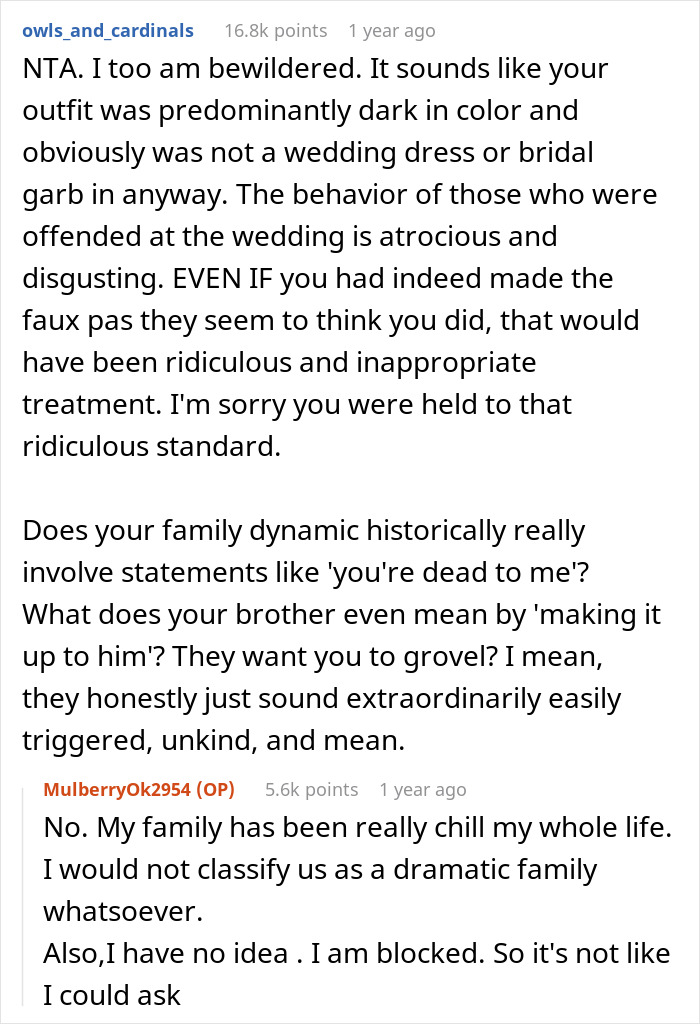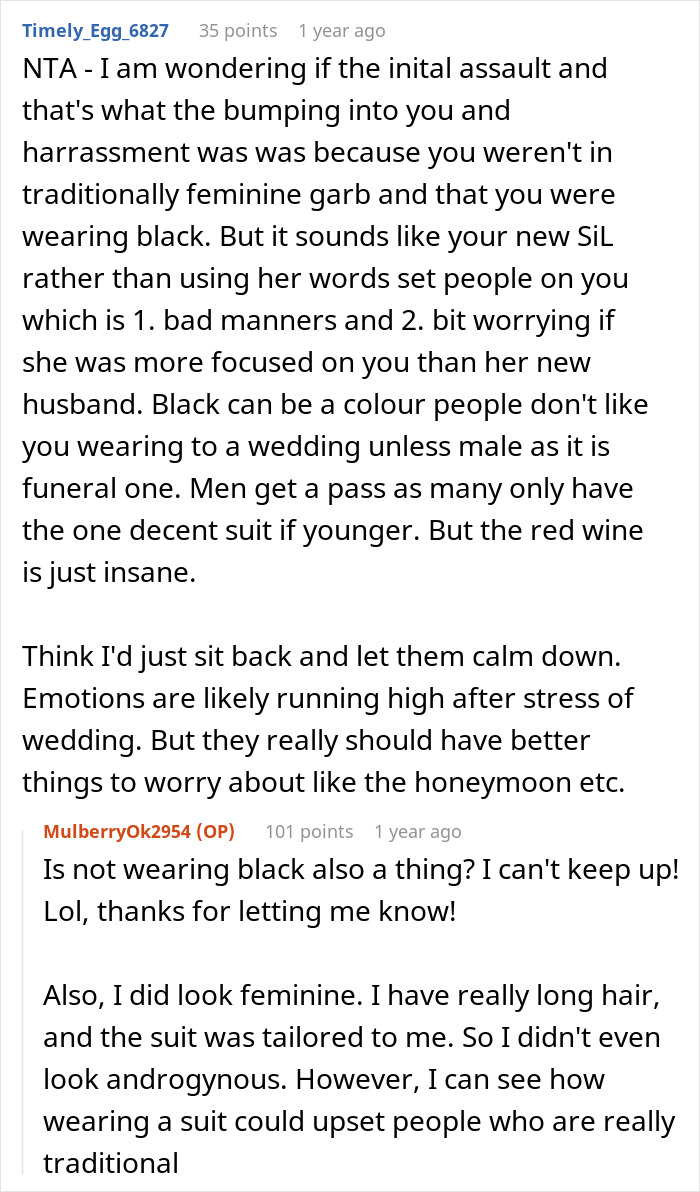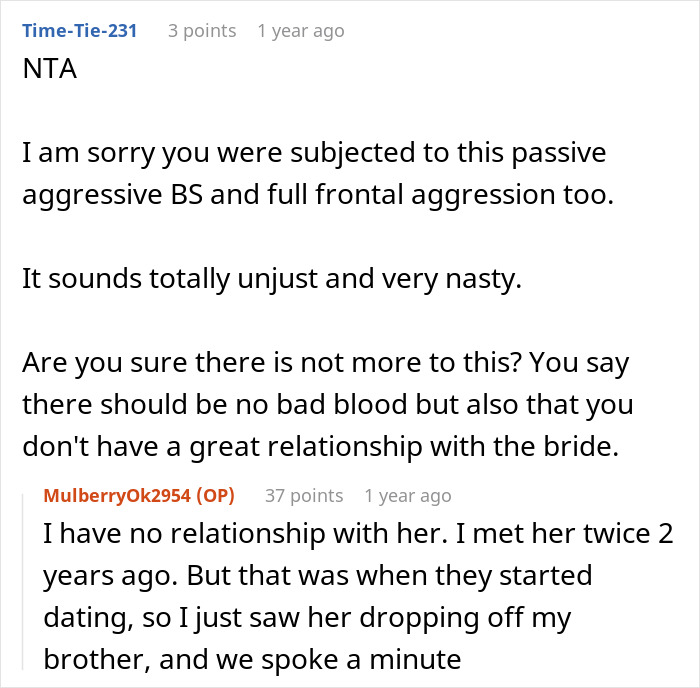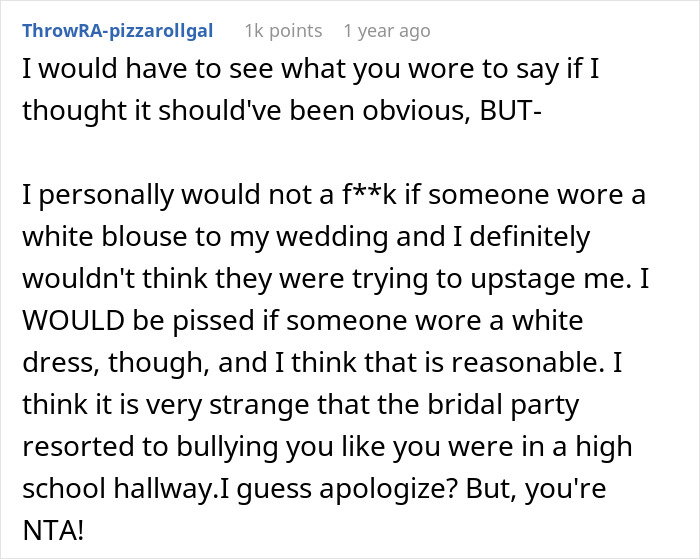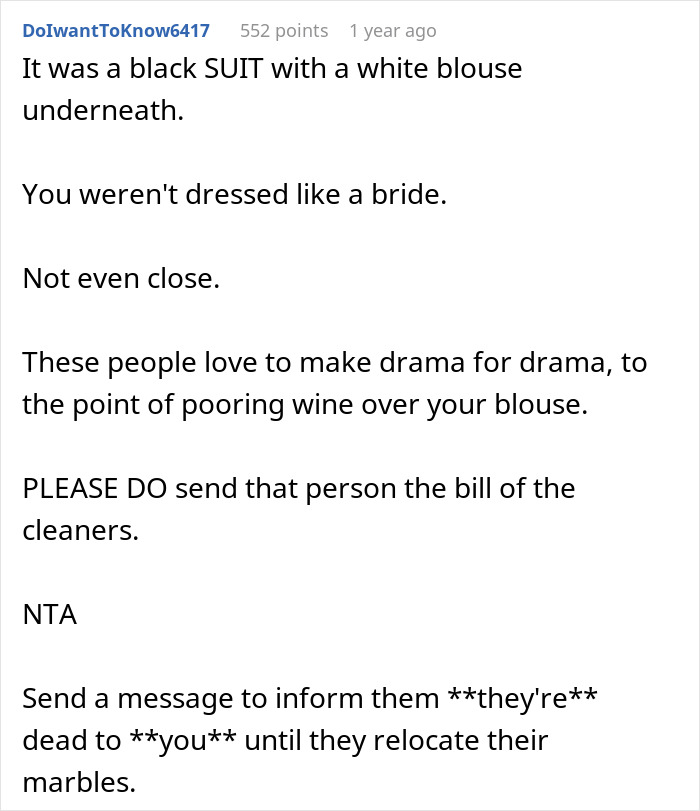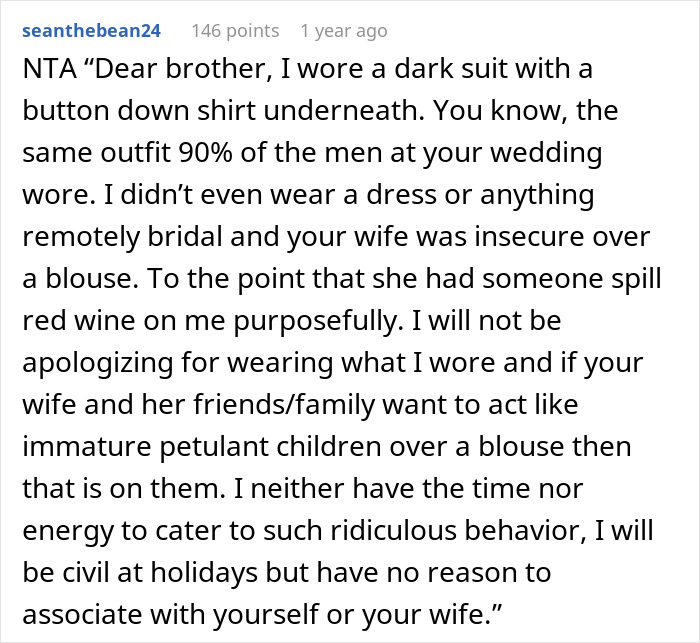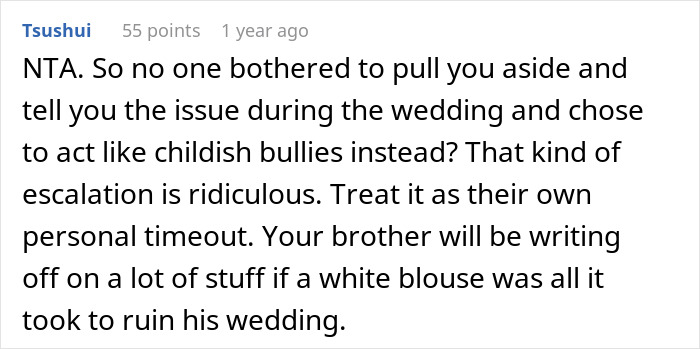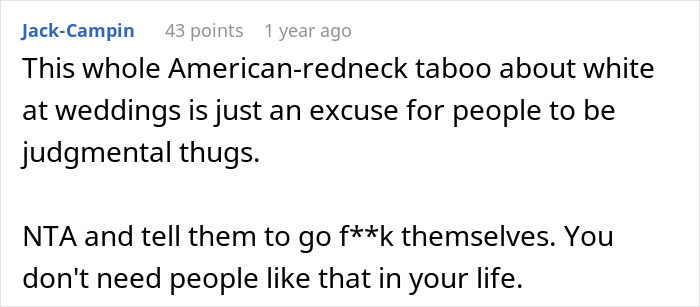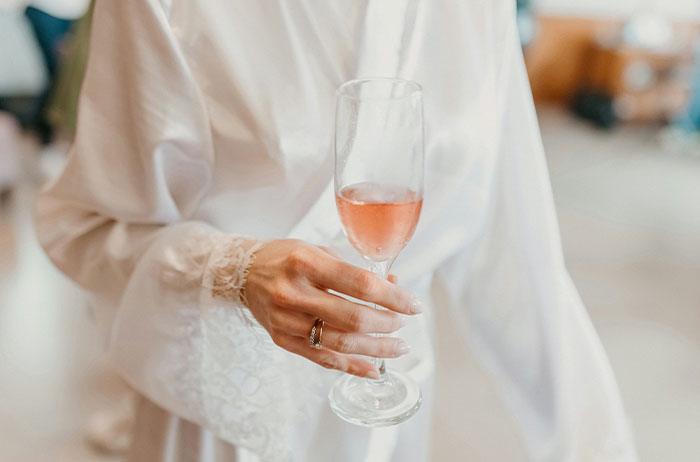When it comes to weddings, certain dos and don’ts are universal: RSVP promptly, arrive on time, and dress appropriately. But some aspects are more of a gray area—like wearing white. Generally, guests avoid white to keep the focus on the bride, but questions often arise: is a white blouse or shirt okay?
Reflecting on this, one woman shared her story of wearing a white blouse to her brother’s wedding. The dress code specified “no white dresses,” so she didn’t anticipate any issues. Yet, her choice sparked major family drama, with her brother even asking her to cover the cost of the bride’s dress as compensation. Keep reading to see how it all unfolded, and for insights from Sakshi Agarwal, a fashion stylist from India, on navigating these tricky style choices at weddings.
Wearing white to a wedding can be tricky, especially if the bride has strong feelings about guest attire
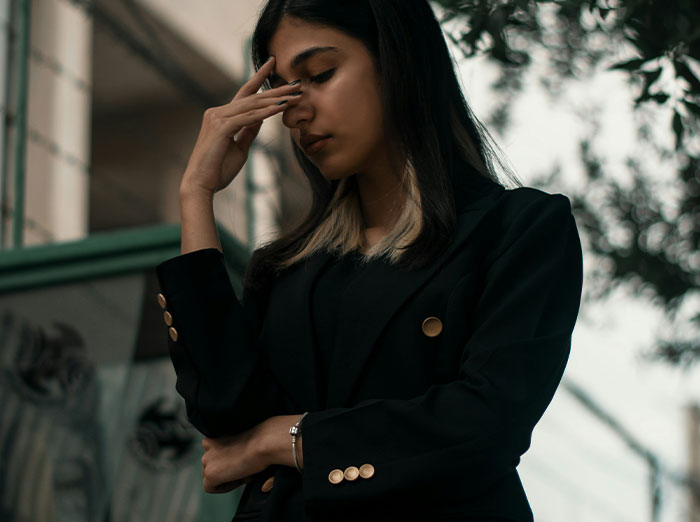
Image credits: Kamyar Dehghan (not the actual photo)
A woman shared how much she disliked dresses, so for her brother’s wedding—which had a “fancy” dress code—she opted for a stylish white blouse and black vest instead
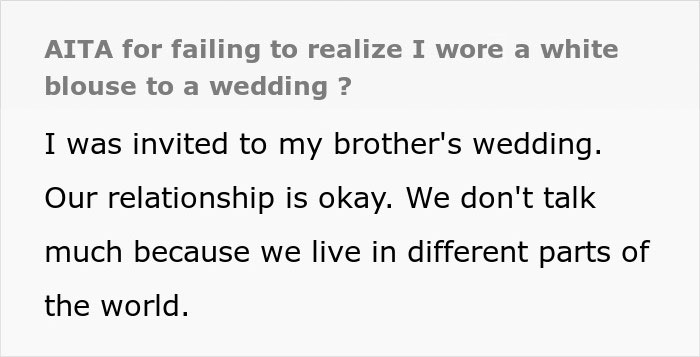
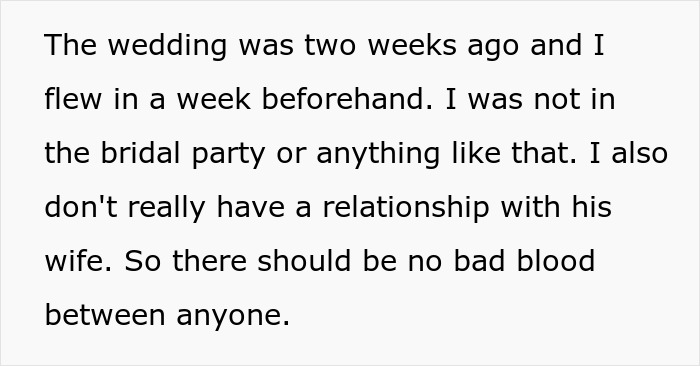
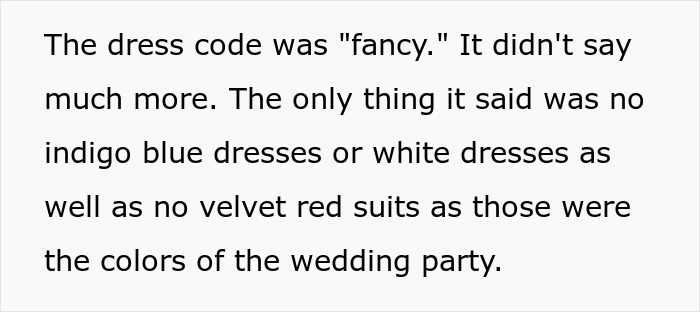
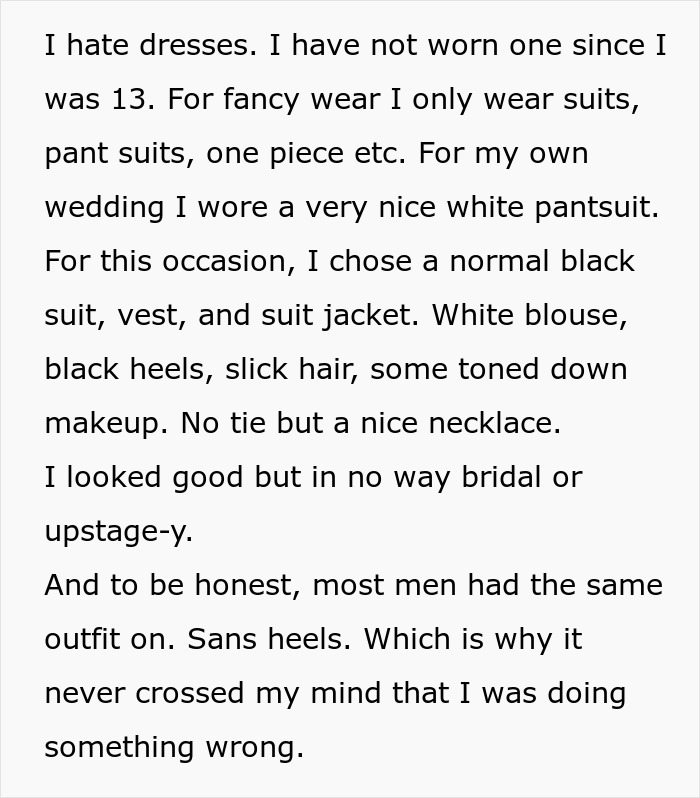
Image credits: Emmanuel Bior (not the actual photo)
But her outfit choice didn’t sit well with the bridal party, and her brother, the groom, was visibly upset
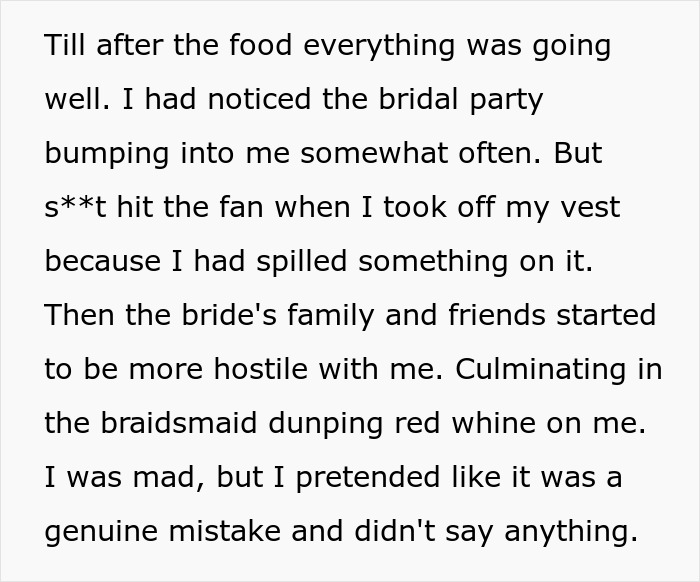
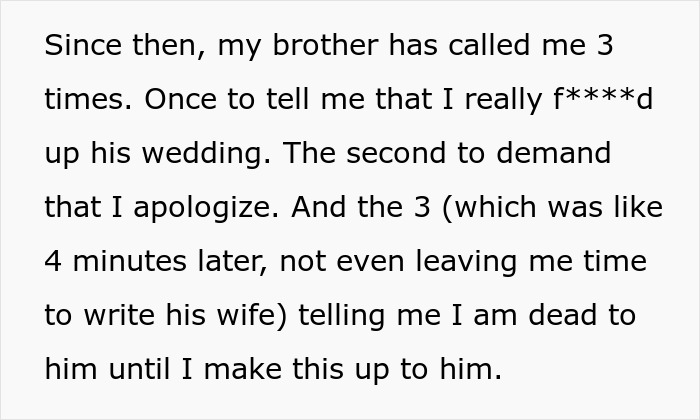
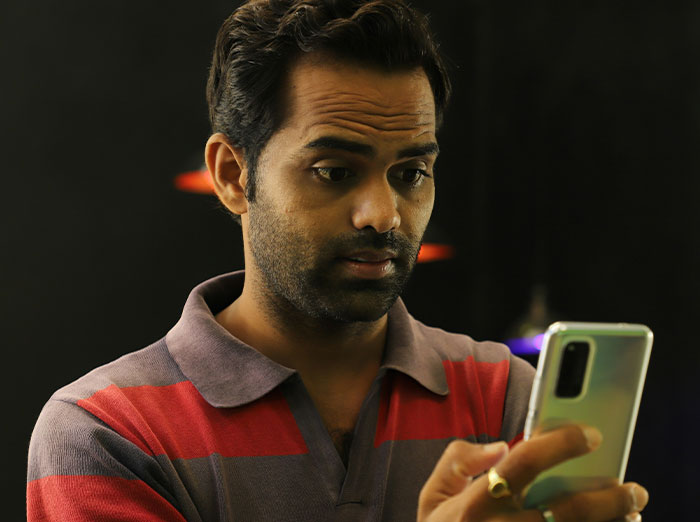
Image credits: jaikishan patel (not the actual photo)
The author’s family had mixed reactions to the situation, with opinions divided on her decision
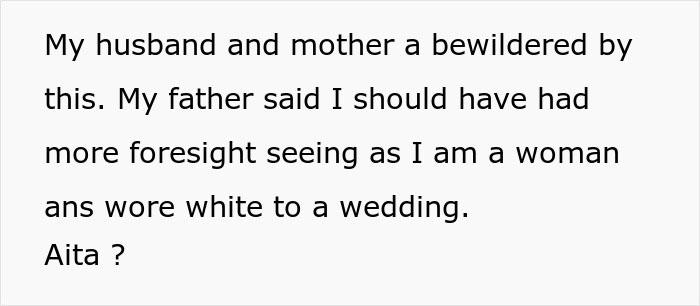
Image source: MulberryOk2954
When it comes to wearing white to a wedding, the topic can be quite controversial. While some believe it’s a strict no-no for guests, others feel it’s acceptable in the right amount, particularly for men wearing white shirts. But what about women wearing white? To get some clarity on this, Bored Panda spoke with Sakshi Agarwal, a fashion stylist with a background in Luxury Brand Management from Régents University London, who offered valuable insights into wedding guest attire.
According to Sakshi, “For guests aiming for a light, airy look without overshadowing the bride, there are several elegant alternatives. Soft pastel blues, warm beige, cream, and lavender are all great options. These colors will look ethereal and sophisticated, without drawing too much attention, making them perfect for both daytime and evening weddings.”
She also explains that wedding fashion has evolved, and today, guests have a wider range of fabric, colors, and textures to choose from. “As a stylist, I’ve observed that fashion trends have opened up many options, blending modern styles with traditional elements. This allows guests to be creative while still respecting the traditional values of the celebration.”
Sakshi adds that “white, traditionally reserved for the bride, is now sometimes incorporated into guest attire in subtle ways, such as through accessories or minimal design elements. When done thoughtfully, touches of white can enhance a guest’s outfit and add sophistication, without stealing the spotlight from the bride.”
She emphasizes that comfort and confidence should always come first. “If you’re unsure about a particular style, it’s better to stick to timeless pieces that suit you well. Classic, well-tailored basics like a sharply tailored blazer, fitted trousers, or quality shoes will create a chic, polished look suitable for almost any wedding.”
Every culture has its own unique attire that reflects its traditions and customs
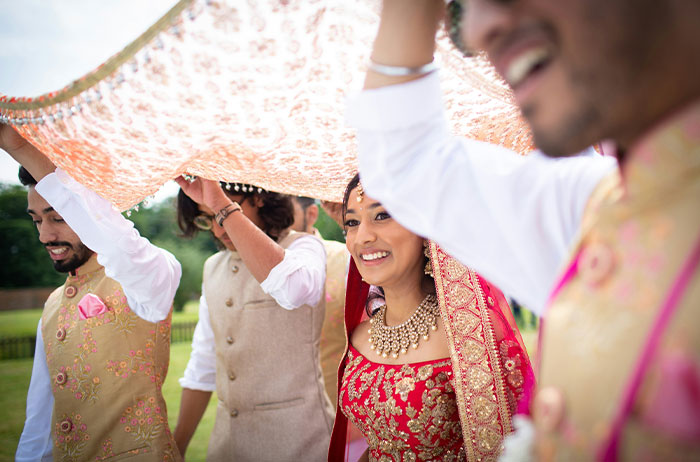
Image credits: Raj Rana (not the actual photo)
Cultural context also plays a significant role in wedding attire. “Each culture assigns unique meanings to colors,” says Sakshi. For example, in Christian weddings, white symbolizes purity and innocence, a tradition rooted in Western culture, particularly popularized by Queen Victoria’s wedding.
In contrast, red holds deep cultural significance in Indian weddings. “In India, red is associated with love, prosperity, and new beginnings. It’s linked to goddess Durga, representing strength and femininity, making it a powerful choice for brides embarking on a new journey.”
Ultimately, choosing the right colors for wedding attire is about balancing personal style, tradition, and the cultural significance of the celebration. In this particular incident, the author wore a white blouse to her brother’s wedding because she felt comfortable in it, and the dress code explicitly prohibited white dresses.
What do you think? Did she go too far by wearing white, or was it simply a harmless outfit choice? Have you ever had an experience where what you wore to a wedding caused drama or misunderstandings? Share your wedding fashion drama stories with us in the comments!
Online, however, people overwhelmingly supported the author, agreeing that she did nothing wrong with her attire
